11 Things Frugal People Notice Immediately When They Go Grocery Shopping With You
Frugal individuals make sure they're shopping with intention for their groceries.
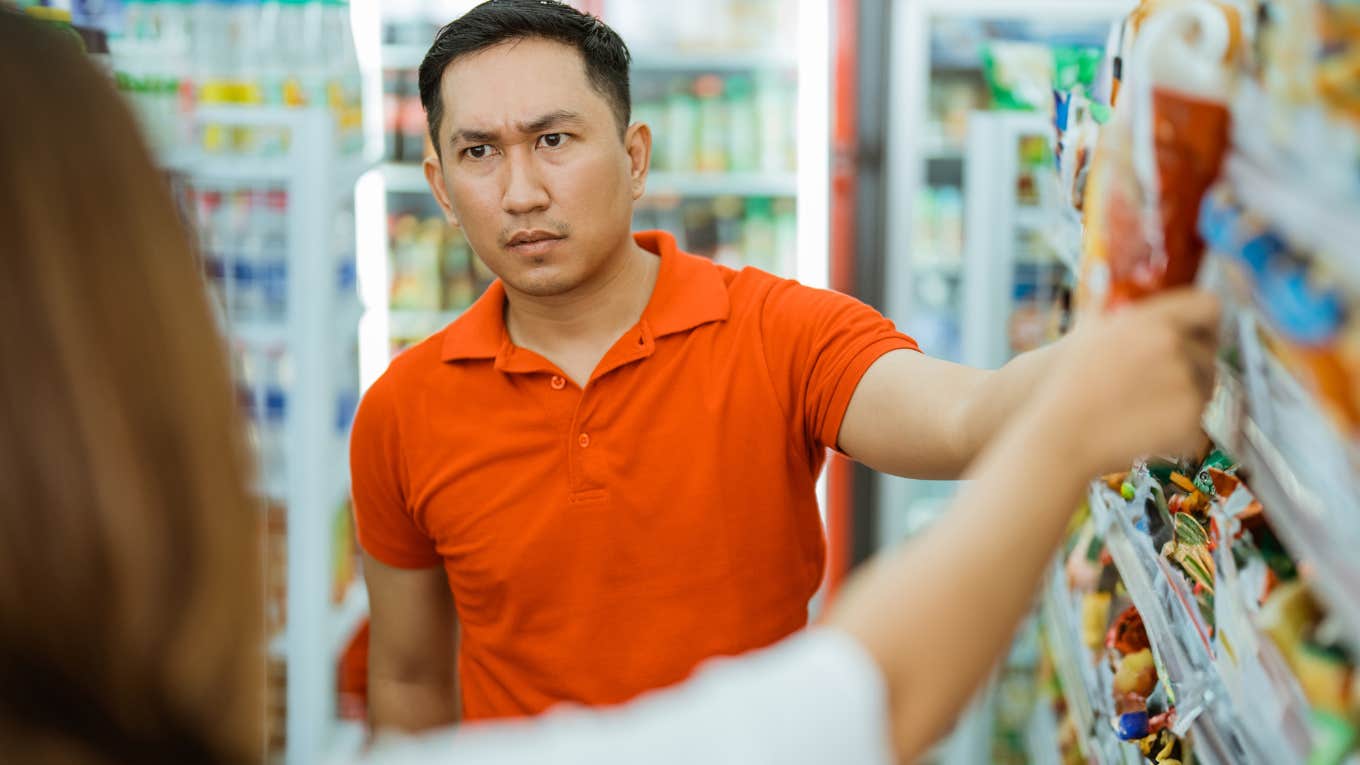 Odua Images | Shutterstock
Odua Images | Shutterstock There are definitely a lot of things frugal people have a strict attitude about, and one of those things happens to be grocery shopping. Considering the price of groceries has gone up exponentially over the last several years due to the rising cost of living, many people have had to really cut back on the types of food items they are buying. When frugal individuals step into the grocery store, they make sure they're only buying the necessities, double-checking prices, and taking advantage of any sales or coupons that are happening in the store that day. However, when they go grocery shopping with those that don't have those same money-saving hacks they do, it's sometimes an entirely different story.
Grocery shopping with people who love to save at every corner means they're judging you for the things you're putting in your cart, and even the way that you prepare to get groceries in the first place. It might seem exhausting because, compared to them, you have a completely different way of buying food. While there are many things frugal people notice immediately when they go grocery shopping with you, their gripes may actually help you in the long run, especially when it comes to not only saving money but avoiding food waste as well.
Here are 11 things frugal people notice immediately when they go grocery shopping with you
1. You don't have a grocery list
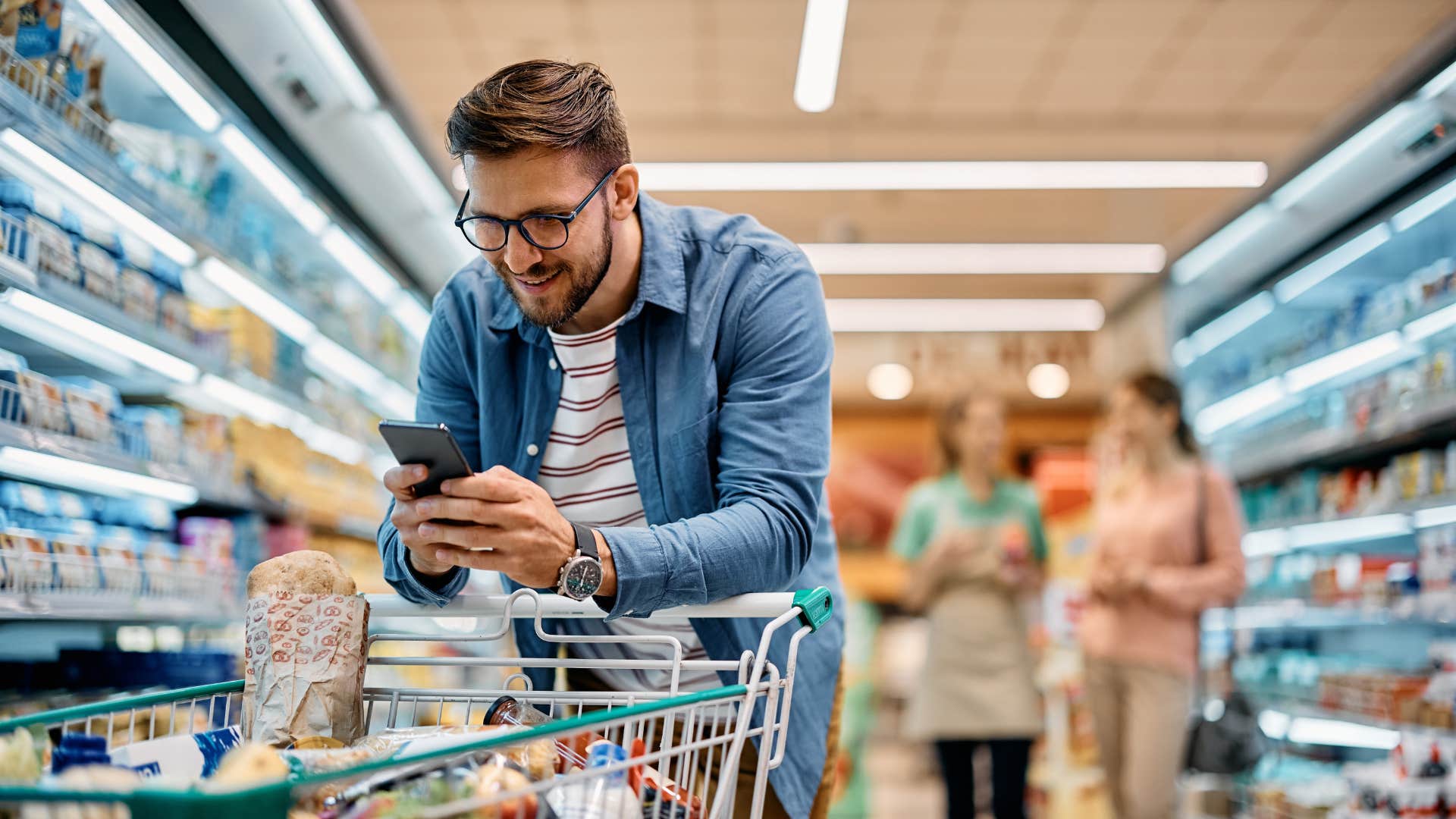 Drazen Zigic | Shutterstock
Drazen Zigic | Shutterstock
There's nothing that can irritate a frugal person more than noticing that you haven't even written down an extensive list of exactly what you need from the grocery store. To them, wandering up and down the aisle, casually looking at products and trying to remember if you need that thing or not, is just wasteful and the reason why you might be spending more than you should be.
According to a survey of consumers across the United States, most people spend an average of $174 per grocery trip, so sometimes a list can help cut back on that number. If you're walking into a store without a list, it makes it easier to just impulsively buy unnecessary things. Instead, you should really only be focusing on the items that you need.
From experience, frugal people know that a well-written list can make such a difference between a cart full of groceries that you actually need versus a cart full of scattered food items and things that will probably sit in your pantry or fridge until it goes bad and you have to throw them away.
2. You have name brands in your cart
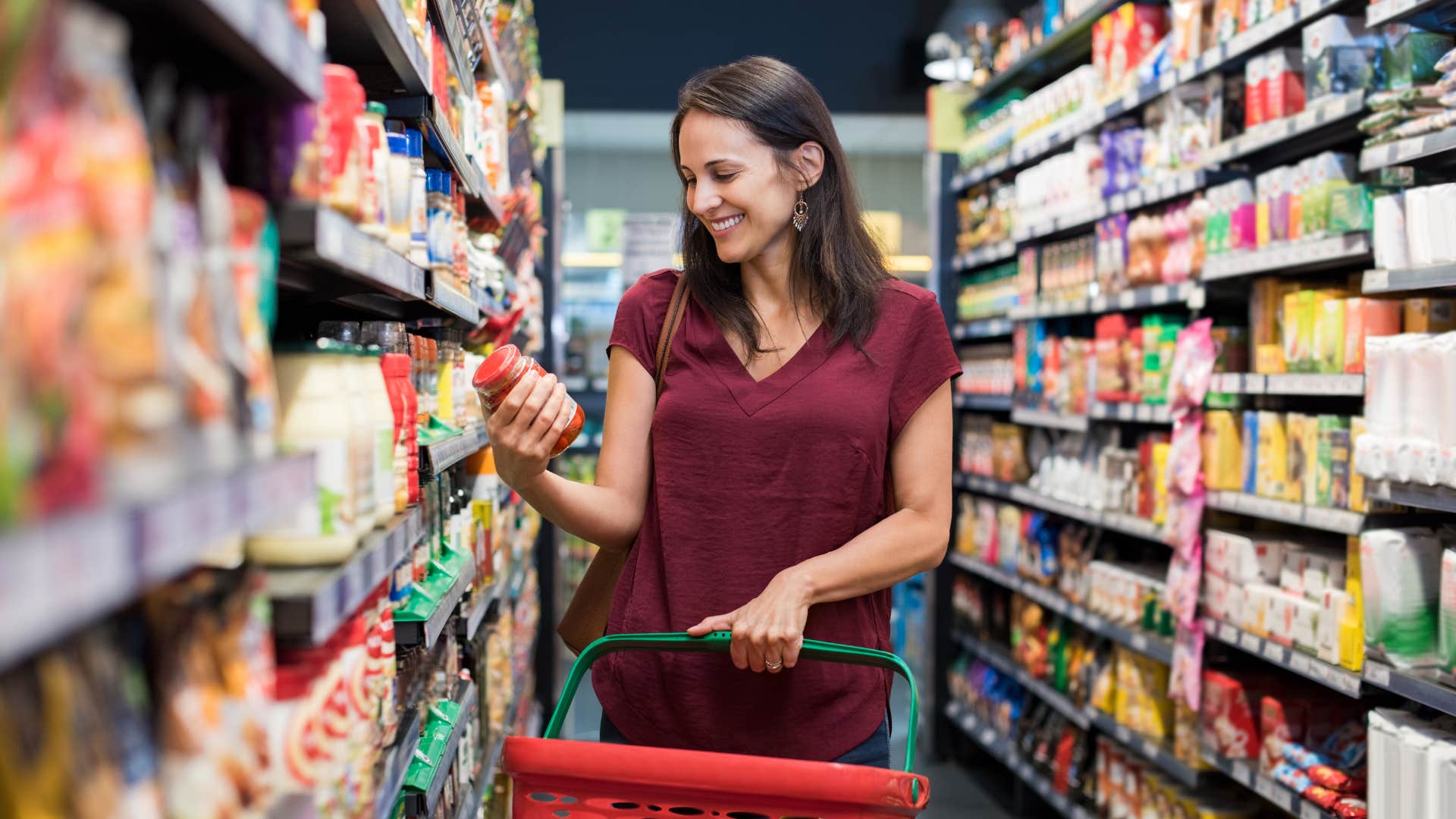 Ground Picture | Shutterstock
Ground Picture | Shutterstock
One of the things frugal people notice immediately when they go grocery shopping with you is the amount of name brand items you're buying, as these individuals truly have a knack for avoiding buying those items. Usually, name brand products are always a bit more expensive than the grocery store brands and, for the most part, there is never really a difference in taste or quality.
If you're shopping with them and you throw a name-brand cereal box into the cart, they probably won't hesitate to point out that the grocery store brand is much cheaper and will probably taste exactly the same. To them, brand loyalty doesn't really mean much if they get to save a few dollars and spend it elsewhere.
According to a report from the Food Industry Association, a majority, 54%, of shoppers admit that they plan to buy "much more" or "somewhat more" private-label brands in the future. Only 26% of those surveyed said the same of well-known groceries, such as Charmin, Tide or Frito-Lay.
3. You're shopping while hungry
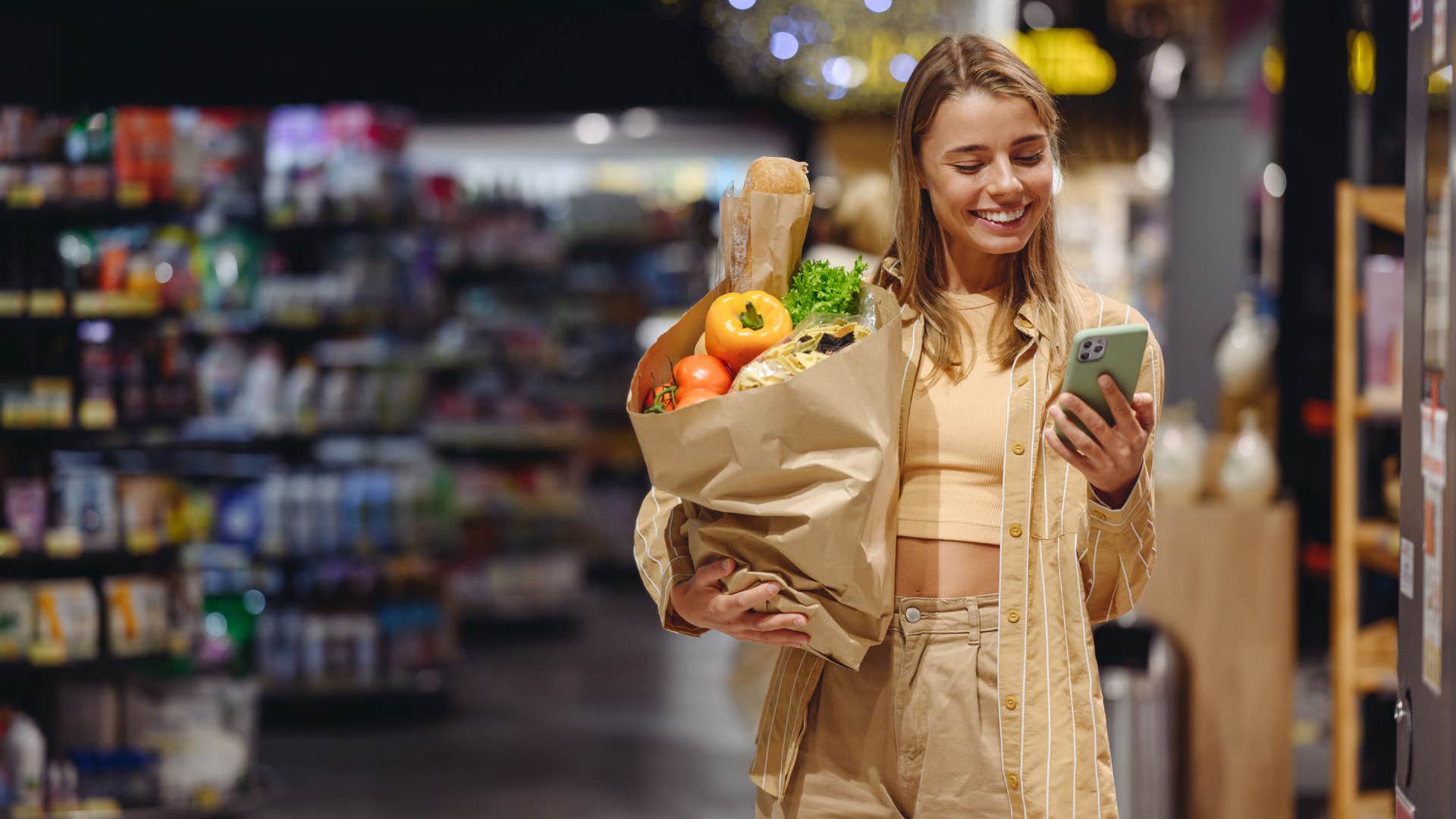 ViDI Studio | Shutterstock
ViDI Studio | Shutterstock
Anytime your frugal friend comes over right before going grocery shopping and notices that all you're having before going is a little snack or a sip of water, they know that you're about to spend way more than you need to be. Going to the grocery store hungry is a classic mistake and means that your eyes will probably linger a bit too long on the variety of different chip options or desserts.
A study from Dole, Inc. even found that grocery shopping on an empty stomach usually costs consumers $26 extra per trip. To frugal individuals, walking into a grocery store hungry means everything looks good and will be going into the cart, which is an irresponsible choice considering it means you're just buying things that look good, but you're not actually thinking about whether or not you need it and are going to actually consume it.
Over the years, frugal people have learned that you need to eat a full meal before going to the store because it makes it that much easier to stick to your list and not veer off to buy something that will satisfy you immediately because your stomach is grumbling.
4. You don't bring your own reusable bags
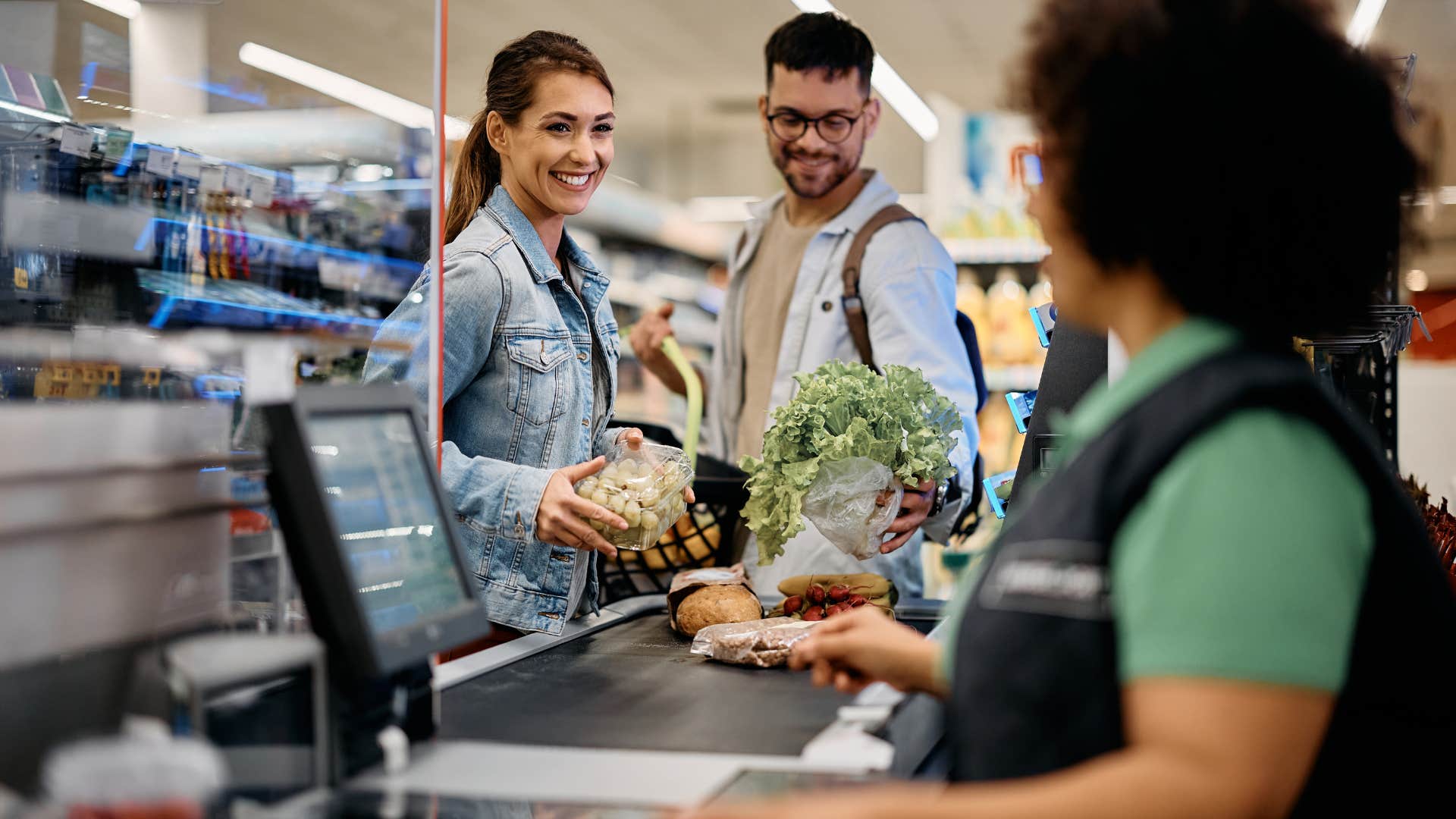 Drazen Zigic | Shutterstock
Drazen Zigic | Shutterstock
To frugal people, forgetting to bring your own reusable bag to the grocery store isn't just about the environment and the waste of plastic, but the fact that it will cost you extra at the end for the store to give you bags. While it isn't a lot, it's still money going down the drain when you could've saved that by bringing your own bags.
Research from Statista found that an estimated 39% of people aged 18 to 29 admitted that they used reusable grocery bags made from cloth or other materials. It's more about staying prepared and organized. When you walk into the store empty-handed and they notice, most of the time, they won't say anything, but they'll definitely clock that you seem not to care about the added cost to your overall bill.
5. You aren't sticking to a budget
 AS photo family | Shutterstock
AS photo family | Shutterstock
Believe it or not, one of the more subtle things frugal people notice immediately when they go grocery shopping with you is whether or not you've made a budget for yourself. They notice that you're simply drifting in and out of aisles, not really looking at the price of things, and just tossing anything and everything into your cart.
Having a budget isn't about restricting the things that you can get, but making sure that you're spending money intentionally. Most people are really trying their hardest to cut back on spending too much at the grocery store. According to a 2024 survey, more shoppers are using various tools when shopping — 76% of shoppers now use digital coupons, 64% participate in loyalty programs, and 38% rely on retail apps, which is up 4% from 2023.
To them, watching you run up the bill without even thinking about it fully is just a downright cringe. Making sure that you're sticking to only spending a certain amount of money at the grocery store means that you're shopping with intention, and in this economy, we can all make sure we're saving where we can.
6. You're not checking expiration dates
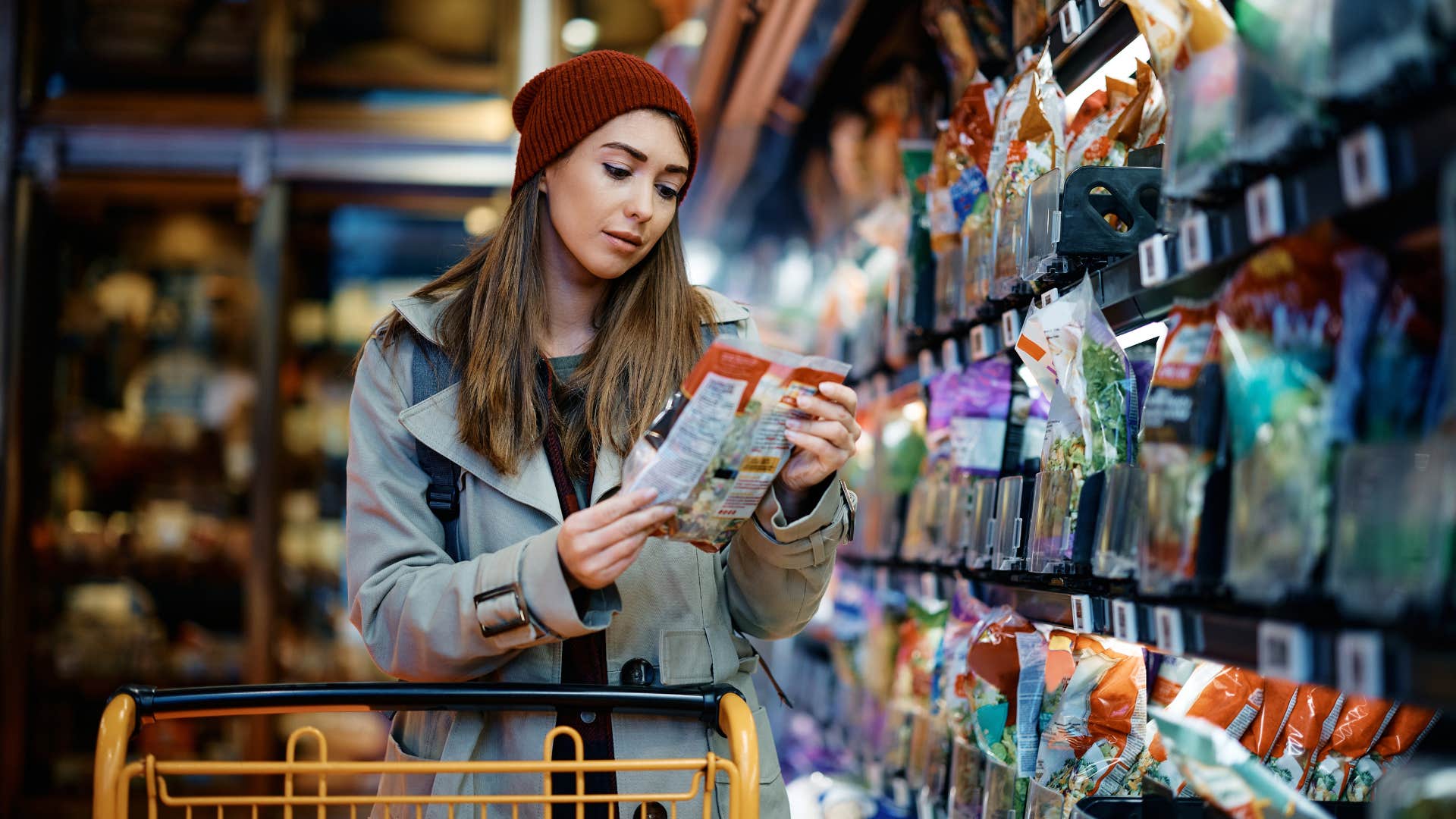 Drazen Zigic | Shutterstock
Drazen Zigic | Shutterstock
Frugal people can spot when you're not checking the expiration dates on the things you're buying, which can be the number one way to waste your money. Most of the time, grocery stores tend to be on top of making sure that they have fresh items on their shelves, but sometimes certain foods may slip through the cracks and it doesn't absolve the consumer of checking.
In a survey from YouGov, 38% of respondents said that they "always" check the expiration date on food products before buying, 29% said they "usually" check, and 8% said they "rarely" check. Skipping this quick step, which really just requires you to glance at the item, might seem harmless, but buying food that's only going to spoil within the next week to two weeks means you're pretty much throwing your money straight into the trash.
Frugal individuals know from experience that checking the expiration date before buying will save you the headache of realizing that something has spoiled before you could even cook it in the first place.
7. You impulse buy at checkout
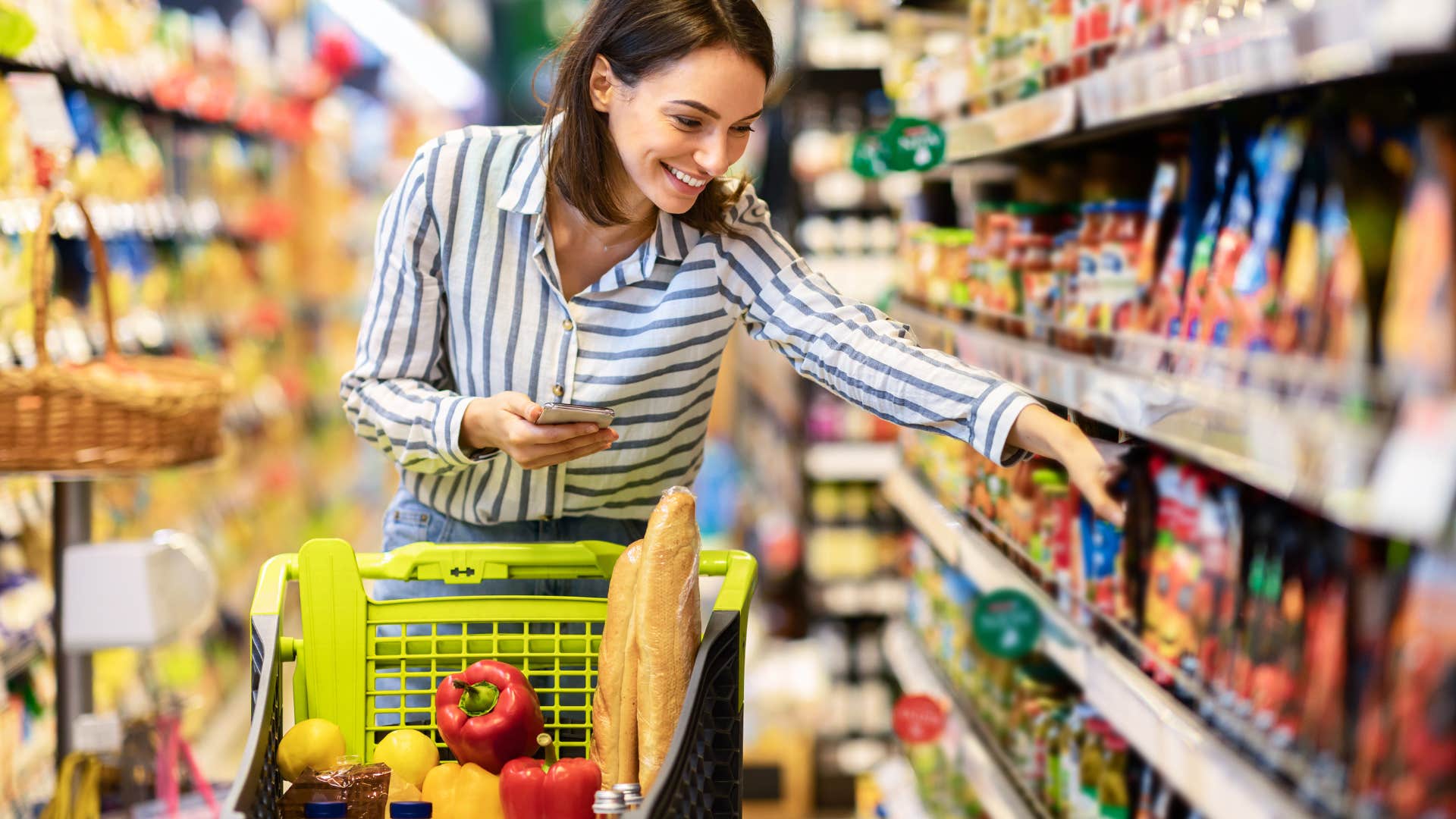 Prostock-studio | Shutterstock
Prostock-studio | Shutterstock
When you impulse buy at the checkout, it's one of the maddening things frugal people notice immediately when they go grocery shopping with you. The checkout line at a grocery store is truly tempting, but for frugal individuals, they tend to have their blinders on to make sure they're not getting caught up in spending an unnecessary amount of money.
From the various brands of gum, to candy bars, and magazines, the checkout line can be quite tempting, but it's usually just the store's last attempt to get you to spend more. Even though the candy bars may be $3 and the canned soda is $6, it doesn't mean those little charges don't add up eventually.
Maybe once in a while, a little treat won't hurt, but every single time you're going grocery shopping doesn't mean you should be spending more than you want to and buying things that you can surely live without.
8. You buy pre-cut fruits and veggies
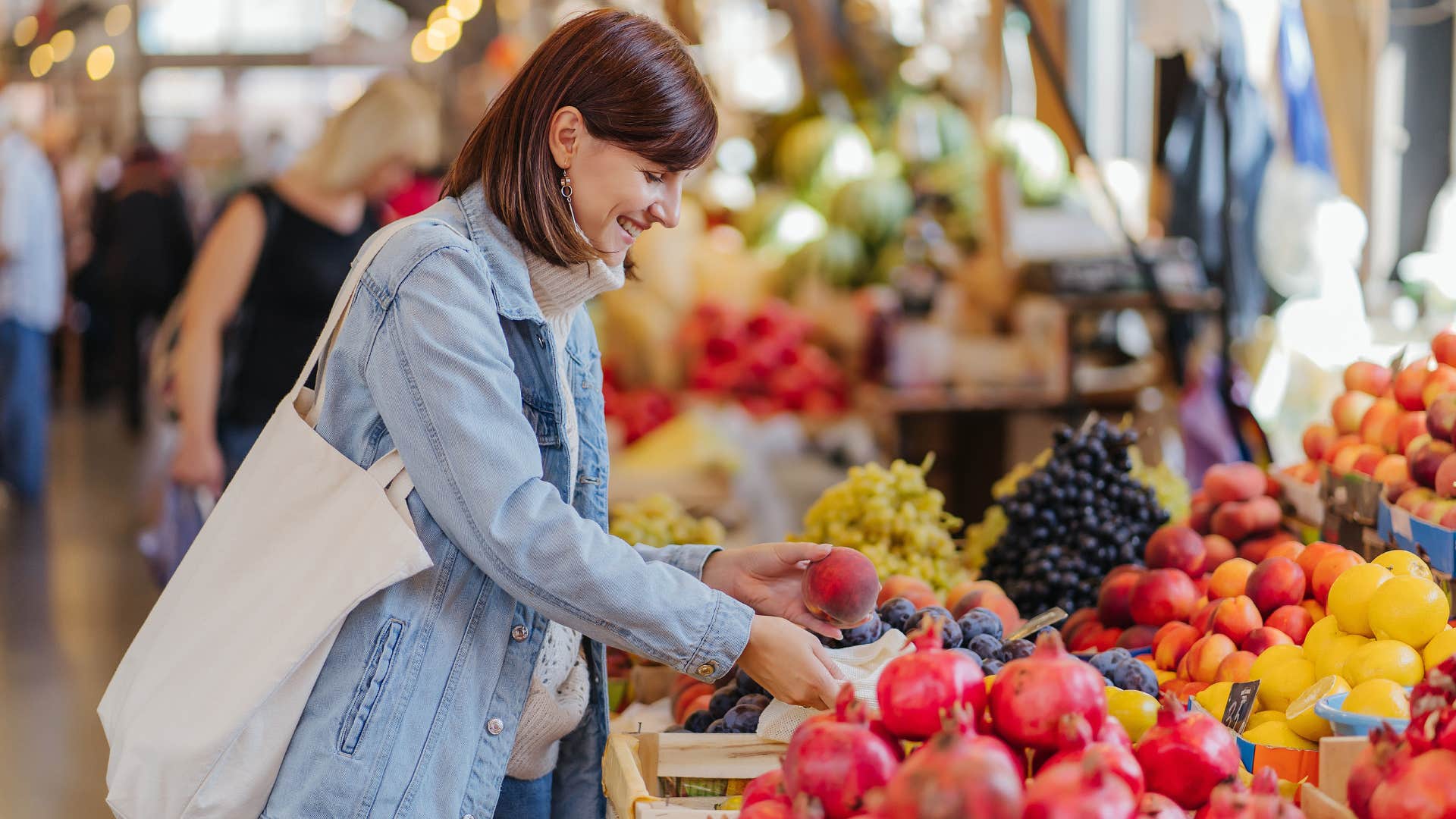 Igisheva Maria | Shutterstock
Igisheva Maria | Shutterstock
For the most part, pre-cut, pre-washed produce items usually cost a few dollars extra than simply choosing to buy a whole, uncut fruit or veggie. It's usually such a sneaky increase in price that really doesn't matter.
Sure, it saves you some time when you're preparing meals or you just want a quick snack and don't feel like cutting up an entire pineapple or mango, but beyond just the extra cost, pre-cut fruits and veggies tend to not last as long as buying a whole one.
It's usually just a double loss, as you're not only spending more but you're also having to eat it quickly so it doesn't spoil. Having to prep and prepare your fruits and veggies can seem really time-consuming and just a chore, but in the long run, you'll be thankful that you're making better money choices.
9. You didn't check your pantry before shopping
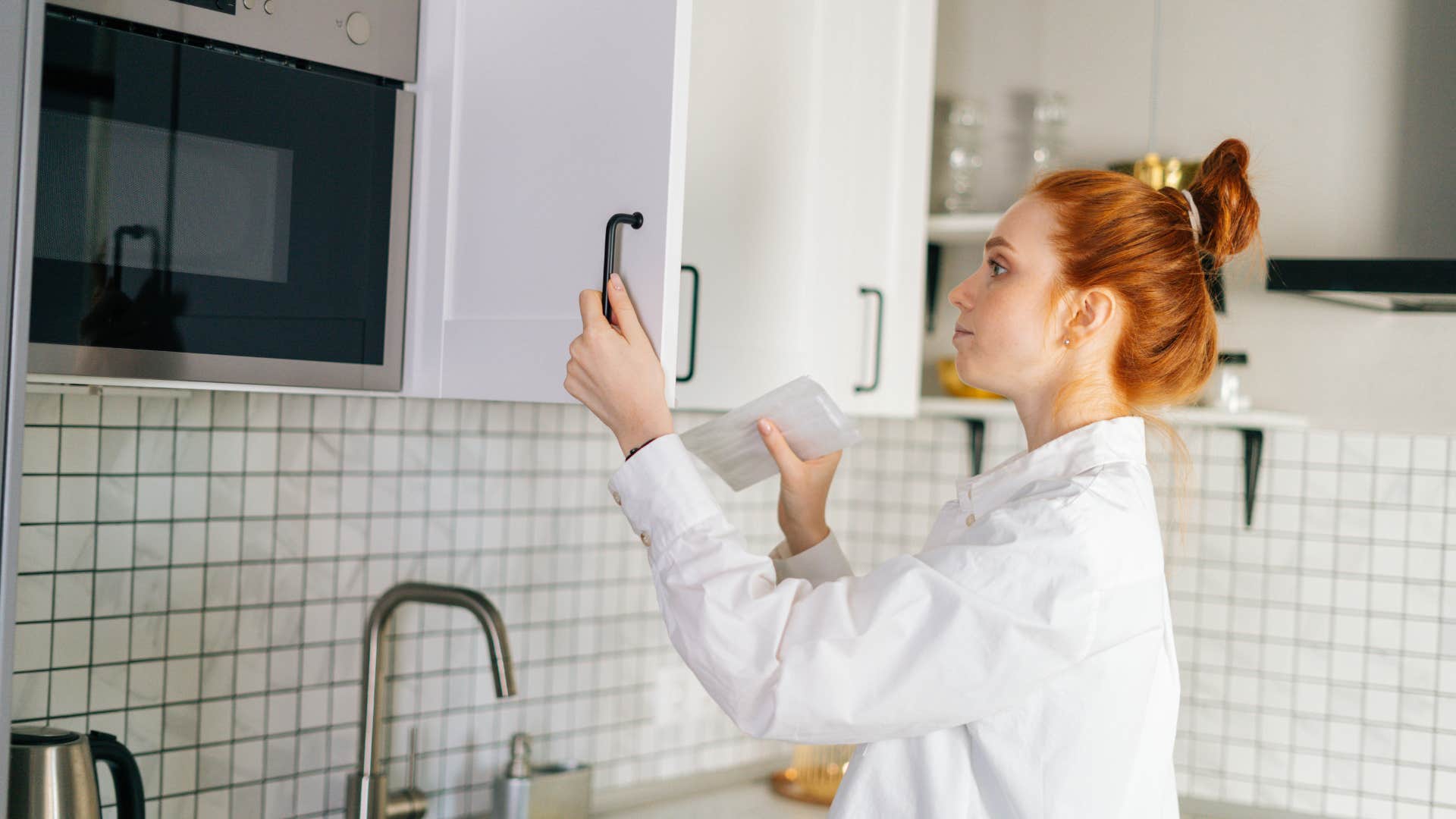 Dikushin Dmitry | Shutterstock
Dikushin Dmitry | Shutterstock
The one thing that can damage your wallet while grocery shopping is failing to double-check your pantry before going to the store. Frugal individuals know that not checking means you're more likely to buy duplicates of something you already have.
It doesn't take much to check if you already have a box of pasta or a jar of pickles because it means you aren't spending more money than you should be. But you also don't have to stress about having to use up both of the food products you've bought before they go bad.
Just to save the clutter and the awkward moment of coming home with your bags and realizing you just spent an unnecessary amount of money, and now you have to squish all of these extra things into your pantry, do a quick check before heading out the door.
10. You don't plan around coupons
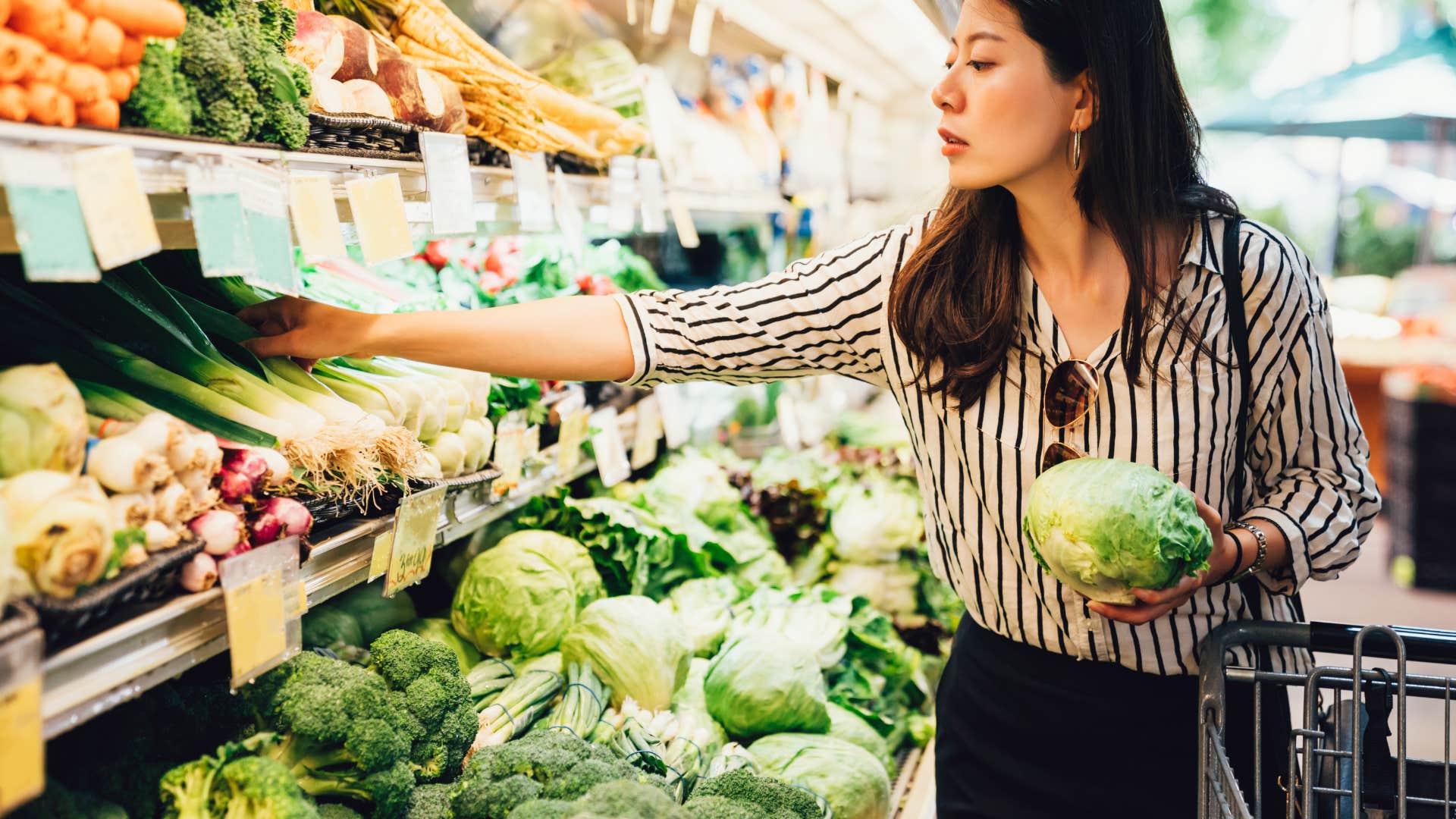 PR Image Factory | Shutterstock
PR Image Factory | Shutterstock
Frugal individuals are usually suckers for a good coupon. They stock up on them and every single time they're going grocery shopping, they make sure to pull them out at checkout and use them accordingly. To them, not planning groceries around the available coupons at your disposal means that you're just letting free money just sit there and not using it to your advantage.
The real savings comes from the random coupons that are either given to you by grocery store workers or are just randomly around the store for customers to take. The flexibility of coupons allows you to grocery shop without having to spend hundreds of dollars, and in the state of the world we're living in now, where so many people are struggling with their finances, sometimes it's a blessing in disguise when we're able to save just a few dollars where we can.
11. You buy random products you'll only use once
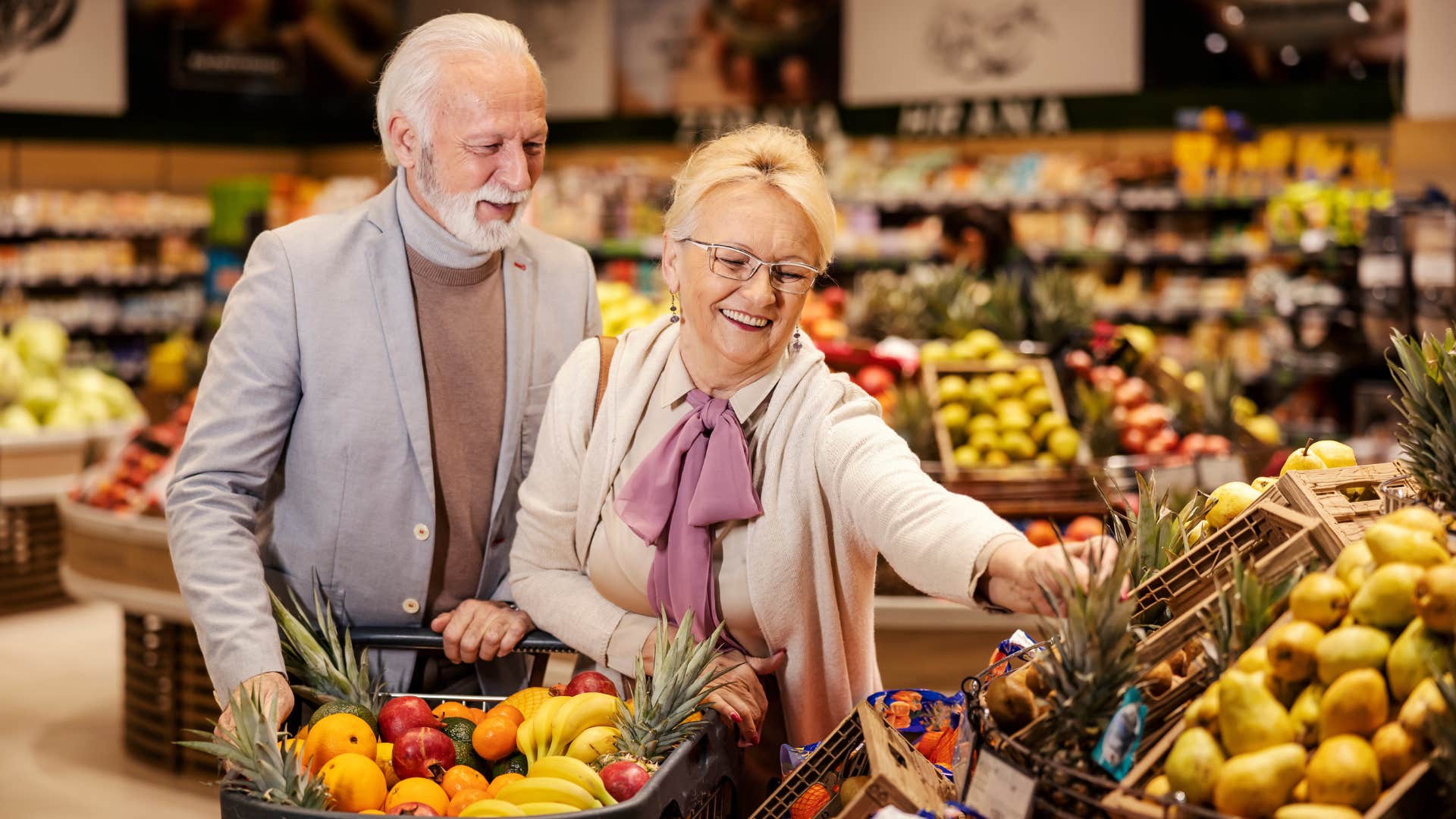 Dusan Petkovic | Shutterstock
Dusan Petkovic | Shutterstock
To frugal individuals, they are extremely intentional about the things they're buying at the grocery store. Even if something might look good to them, if they know they can't incorporate it into a recipe or use it as a snack, they'll simply put it back on the shelf. They're not the type of person to buy a food product just for the sake of it or just because it sounds good.
If they can't see themselves using it, then it's not going in the cart. So, when they see individuals who don't have the same mindset throwing anything into the cart that catches their eye, it definitely sends a shiver up their spine. Considering they think about things so intentionally, the thought of buying something they know they won't use means money down the drain.
Nia Tipton is a staff writer with a bachelor's degree in creative writing and journalism who covers news and lifestyle topics that focus on psychology, relationships, and the human experience.

